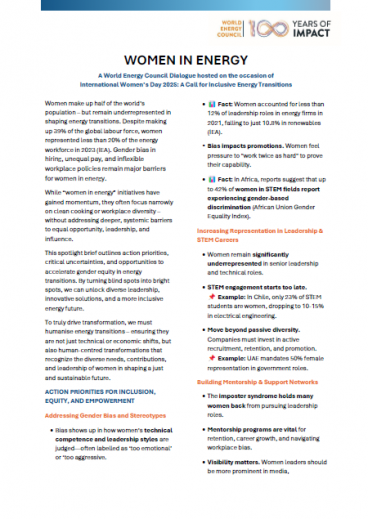Securing energy justice must be a COP26 goal
Originally published in the Financial Times' Letters to the Editor on 26 March 2021.
Helen Thomas’s article (“People are a business blind spot in ESG disclosures”, Inside Business, March 24) on environmental, social and governance reporting is right to highlight that the “S” in ESG is the poor relation of the “E” and the “G”. She also correctly draws attention to the fact that the “planet” receives more corporate reporting attention than “people”, and that the language around “social” often amounts to corporate fluff, at best.
However, to focus social reporting solely on staff, as she suggests, is a mistake. Society, supply chains and security also form part of the “S”.
In the world of energy, we see a risk that locally clean, net-zero energy solutions might still lead to globally dirty and socially unfair outcomes. We see wealthy world conversations about the type of electricity 10 per cent of society may prefer, while 800m on the planet are without any access to electricity whatsoever.
There remain significant societal questions about who pays for the full costs, and benefits, of global energy transition. Energy justice across the planet is far from secured, and energy affordability is a growing issue in developed and developing countries.
With just over seven months to go until the UK-hosted COP26, let’s seize the moment to address climate and societal challenges through strengthening the “S” metrics in “ESG” reporting.
Angela Wilkinson, Secretary-General and CEO, World Energy Council






_-80_result_688_387_s_c1_c_c.jpg)

